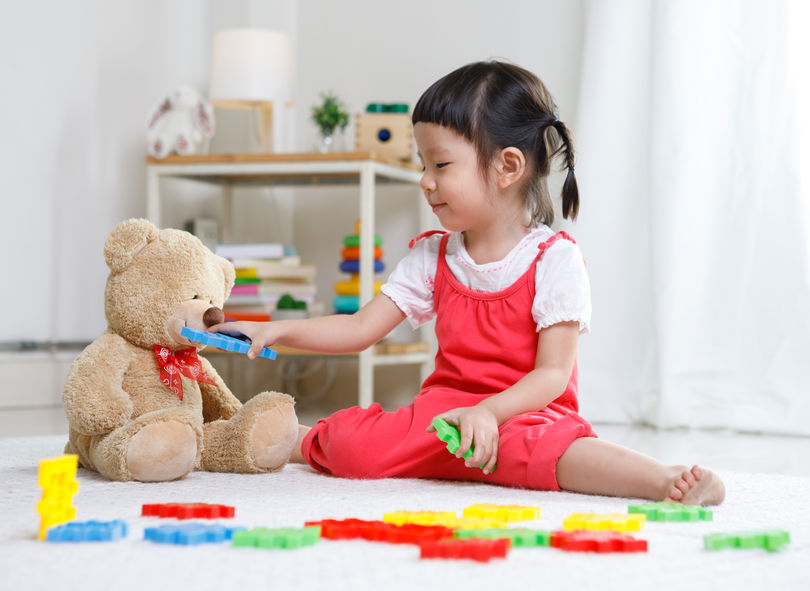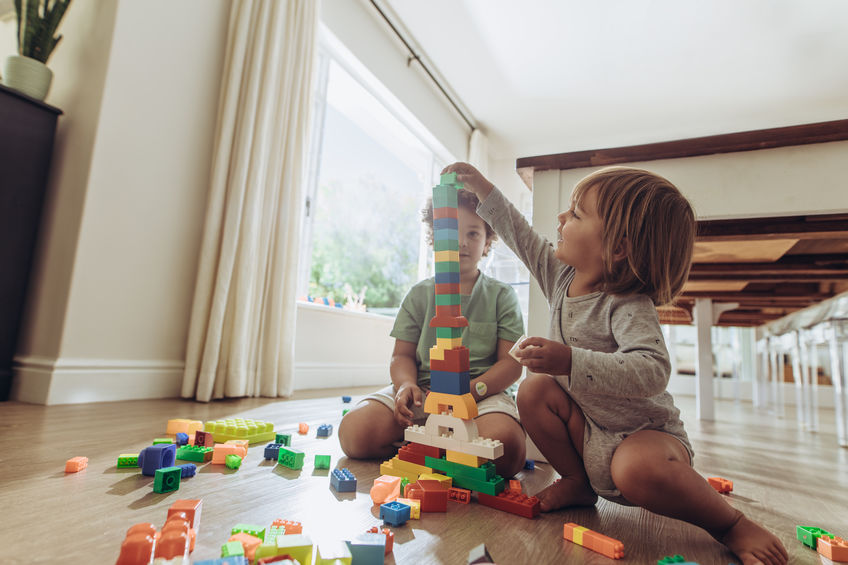
It’s no secret that today’s world can feel overwhelming—even for children. From changes in routines to exposure to current events, many kids are picking up on stress and uncertainty, which can lead to feelings of anxiety. As caregivers, it’s natural to want to shield children from those big emotions, but one of the most effective tools for helping them cope is also one of the simplest: playtime.
Research shows that unstructured, creative play gives children the emotional release they need, helping them process feelings, build resilience, and regain a sense of control. If your child has been showing signs of anxiety, try incorporating more intentional play into their day.
Here are a few gentle ways to get started!
Create Opportunities for Laughter
Laughter really can be the best medicine. It releases endorphins, lowers stress hormones, and creates positive emotional connections. Watch a funny movie together, play a silly game, or tell goofy jokes—whatever gets your child giggling. These small moments of joy can go a long way in shifting their mood and easing anxious feelings.
Let Them Win (Sometimes)
While learning to lose gracefully is important, allowing your child to win every now and then can give their self-esteem a healthy boost. Winning occasionally helps them feel capable and confident, especially when they’re struggling emotionally. The key is balance—let them enjoy the win while also helping them build coping skills for when outcomes don’t go their way.
Offer Daily “Special Time”
Set aside 10–15 minutes each day where your child can choose the activity—no screens, no chores, just uninterrupted time together. Whether they want to build with blocks, create a story with their favorite plush animal, or engage in imaginative play, this dedicated space gives them a sense of autonomy and a safe outlet for expressing their feelings.
Encourage Comforting Pretend Play
Pretend play allows children to explore emotions in a safe and manageable way. Giving them a comforting plush friend to care for or talk to can be incredibly grounding, especially during times of stress. Soft toys can become a source of stability, giving children someone to “talk to” when they’re sorting through big feelings.
Helping your child manage anxiety doesn’t have to be complicated. A little play, laughter, and a lot of love go a long way!
If you’re looking for a cuddly companion to support your child’s play and comfort time, browse our collection of adorable, stuffable animals at The Zoo Factory, perfect for sparking smiles and easing stress one hug at a time.
